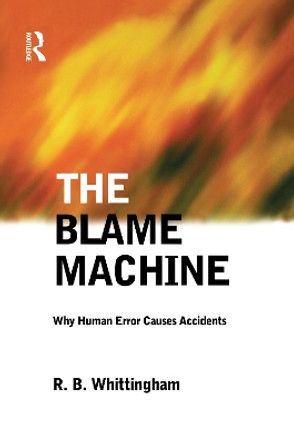Description
About the Author
Dr Dismukes is Chief Scientist for Human Factors in the Human Factors Research & Technology Division at NASA Ames Research Center. His current research addresses cognitive issues involved in the skilled performance of pilots, their ability to manage challenging situations, and their vulnerability to error; prospective memory; and management of attention in concurrent task performance. Captain Berman is a senior research associate at San Jose State University/NASA Ames Research Center and flies the Boeing 737 for a major air carrier. He is the former Chief of Major Investigations of the U.S. National Transportation Board, where he previously led the Operational Factors Division, served as a member of the major accident go-team responsible for flight operations, and managed safety studies. Dr Loukopoulos is a Senior Research Associate at NASA's Human Factors Research and Technology Division. She currently resides in Athens, Greece where she serves as a human factors consultant to the Greek Air Accident Investigation and Safety Board and where she served on the Helios Airways 2005 accident investigation. She also continues her collaboration with NASA through the San Jose State University Foundation.
Reviews
'The authors do not, however, argue that human error is just part of the price of doing business - it must still be reduced, and to be reduced, the factors associated with it must be understood as well as possible, which is the aim of their study.' AeroSafety World, May 2007 'Overall, this is an excellent and innovative text which reflects the authors' original approach to airline safety. The book is outstanding in its identification of common themes that run deeper than in previous analyses of aviation safety, and the final chapter contains clear, pragmatic guidance to the air transport and to researchers. In the final sections of the book, the authors sum up the central challenge faced by the industry in reducing vulnerability to error: pilots should be given more information, better interfaces and clearer decision-making guidance - backed up by prioritizing adherence to that guidance over commercial pressures such as on-time performance. The book will be informative for diverse readers in the air transport industry, including operational staff, researchers, safety analysts, accident investigators, designers of systems and procedures, training providers and students.' Ben Daley, Manchester Metropolitan University - Review Submitted to Amazon.com 'The Limits of Expertise challenges how we think about accidents and pilot error. From details of recent accidents, the authors argue that while pilot error is often concluded as cause, we should expect many operators similarly situated to make comparable decisions and take equivalent actions. From that perspective, individual actions and errors are not the source of accidents but a result of systemic causes. This reframing provides good news - managers and regulators can act at system levels to prevent many future accidents.' Tom Chidester, Civil Aerospace Medical Institute, USA 'This is not a Michael Crichton thriller, but those familiar with aviation will easily be able to follow the details as they are stated in fa
Book Information
ISBN 9780754649656
Author R. Key Dismukes
Format Paperback
Page Count 368
Imprint Routledge
Publisher Taylor & Francis Ltd
Weight(grams) 688g








